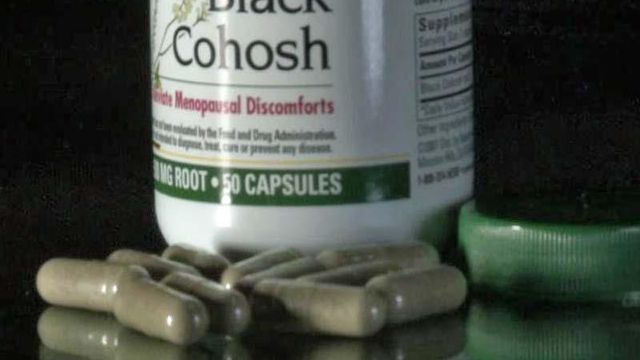Herbal supplement could help ease menopause symptoms
Some women might be able to handle the symptoms of menopause without medical assistance. Many others need help but are afraid of the possible side effects of hormone replacement therapy.
Posted — UpdatedSusan Long first experienced menopause four years ago, when she was 49 years old.
“I started waking up at night and feeling extraordinarily warm,” Long recalled.
Long went to Raleigh gynecologist Dr. Polly Watson for help but she wanted to avoid hormone replacement therapy.
The institute’s group of studies showed estrogen plus progestin increased the risk of breast cancer and cardiovascular disease.
Black cohosh, an herbal supplement, is one non-hormonal option for those suffering from menopause symptoms.
“Some of them can be liver toxic, so we do, for instance, want to follow liver functions if someone’s on black cohosh,” Watson said.
The supplement worked for Long, but only for awhile. Then, she began having other symptoms, including memory problems and irritability.
“You'd probably have to ask my husband about that because it was pretty rough for awhile,” Long said.
Watson offered Long an anti-depressant medication known as an SSRI, which also controls hot flashes.
Long was willing to try the medications.
“Literally, within three weeks, I felt like I had my life back,” she said.
Menopause can last, on average, about four years.
Long is still experiencing symptoms, but she said regularly visiting her doctor to tailor treatments to her changing needs has made all the difference.
Watson said patients should always check with a doctor before taking herbal supplements because some may interact with other medications.
• Credits
Copyright 2024 by Capitol Broadcasting Company. All rights reserved. This material may not be published, broadcast, rewritten or redistributed.





